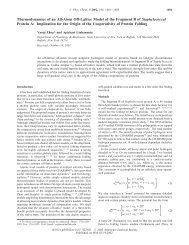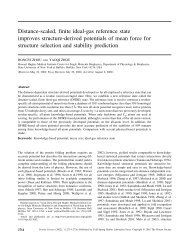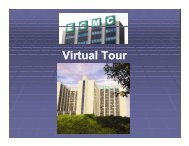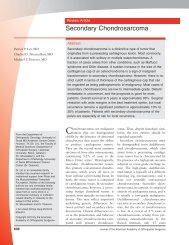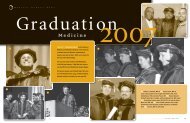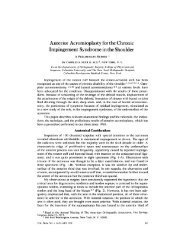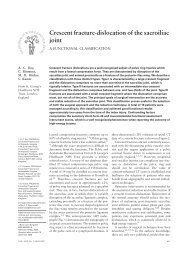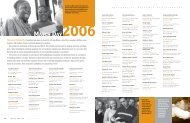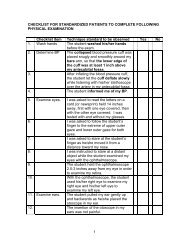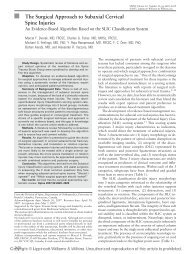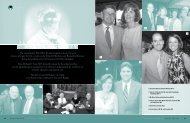Download Residency Training Program PDF - Ross Eye Institute
Download Residency Training Program PDF - Ross Eye Institute
Download Residency Training Program PDF - Ross Eye Institute
Create successful ePaper yourself
Turn your PDF publications into a flip-book with our unique Google optimized e-Paper software.
• The resident will perform surgical procedure at a level compatible with<br />
the individual resident’s abilities and level of training, under the direct<br />
supervision of the attending physician.<br />
• The resident should be familiar with both laser and surgical interventions<br />
including: ALT, YAG PI, laser suture lysis, paracentesis, anterior<br />
chamber wash-out, trabeculectomy with anti-metabolite, combined<br />
trabeculectomy with cataract extraction and the implantation of drainage<br />
devices.<br />
• In addition to mastering the above skills, the resident should be familiar<br />
with the indications for each procedure and should be able to discuss these<br />
with both peers and patients.<br />
ASSESSMENT—The resident will perform all surgical techniques under the<br />
direct supervision of the attending physician and will be given immediate<br />
feedback regarding performance.<br />
F. Oculoplastics<br />
First Year Residents<br />
COGNITIVE:<br />
• The resident should be familiar with the various modes of examination of<br />
orbital processes and acquire working differential diagnoses for orbital<br />
inflammations, tumors, and vascular problems.<br />
ASSESSMENT—The resident will be quizzed during each clinic session to<br />
insure that his fund of knowledge is appropriate and will be observed<br />
examining orbital patients.<br />
• The resident should be familiar with the interpretation of orbital imaging<br />
studies, especially CT scans and magnetic resonance images.<br />
ASSESSMENT—The attending physician will periodically questions the<br />
resident regarding pertinent CT and MRI findings in patients with orbital<br />
disease.<br />
• The resident should be familiar with the etiology and management of<br />
eyelid malpositions, including ectropion, entropion, ptosis, and lid<br />
retraction.<br />
ASSESSMENT—Patients with eyelid malpositions will be presented to the first<br />
year resident and the diagnosis, etiology and treatment plan discussed to<br />
insure the resident is mastering these concepts.<br />
PROCEDURAL<br />
38



